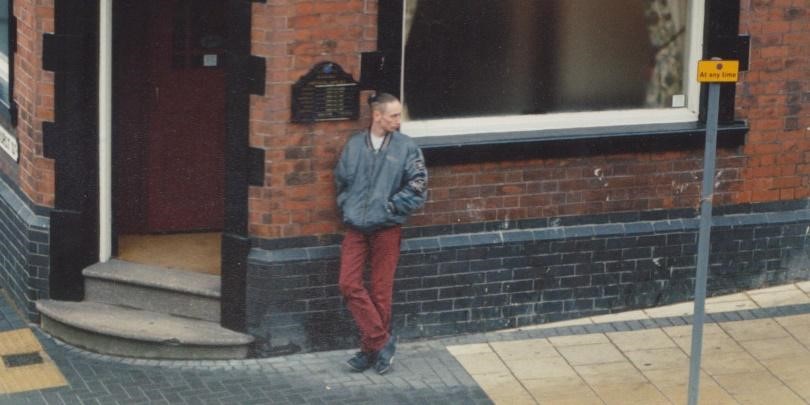On the front line of the War on Drugs, by Neil Woods

In 2013 Professor David Nutt, former Chair of the UK’s Advisory Council for the Misuse of Drugs, publicly declared that the prohibition of certain drugs was the ‘worst case of scientific censorship since the Catholic Church banned the works of Galileo’[i]. His point still stands. For decades, scientific research into substances which offer us an improved understanding of the human mind and which have therapeutic potential have been curtailed by global anti-drug laws.
However, this scientific censorship is increasingly being questioned, most recently with the Advisory Council for the Misuse of Drugs’ recommendation that regulated cannabis-based medicines be made available in the UK, following a public campaign by parents of children whose epilepsy is better managed by such medicines. Whilst it is difficult to get a licence to research drugs such as cannabis and MDMA, and their illegality makes them prohibitively expensive, scientific studies examining their potentially therapeutic properties have been undertaken, including on the therapeutic potential of psilocybin and ketamine to treat severe depression, and more recently, the success of trials of the treatment of post-traumatic stress disorder (PTSD) using MDMA.

The work of the Multidisciplinary Association for Psychedelic Studies (MAPS) based in the US is hugely exciting. As a sufferer of PTSD, I have a personal interest in this. I live with an increasing number of debilitating PTSD symptoms, of which the most persistent and tiring is a profound sense of guilt. I have moments where I exist completely in a memory from over a decade ago, and in so doing I develop breathtaking anxiety. I worry that I will never escape from the memories, all of which concern people I have harmed. As an undercover police officer, I was tasked to catch gangsters. I used and manipulated vulnerable people in order for them to introduce me into the ranks of organised crime.
During many years of this shady work I had numerous near-death experiences. I’ve had a samurai sword held to my neck and a knife to my groin. I’ve been stripped at gunpoint and been the target of a deliberate hit-and-run attempt, from which I narrowly escaped. These events have contributed to my current mental state. However, the most dominant memories are of the people I endangered with my Machiavellian manipulations. Anyone introducing a police officer to the gang is likely to suffer, but I made the decision to involve others time and time again, despite being fully cognisant of the dangers they would be exposed to. There is no other form of policing for which the end justifies the means: whereby inflicting harm on somebody is warranted in order to get a desired result. The War on Drugs has brought a military mindset to policing, and with it has come a condition associated with military action.
As a society we now have a better awareness of PTSD. It is widely understood that trauma of all sorts can leave considerable mental scars. We have come a long way from soldiers suffering from ‘shell shock’ being considered cowards. Complex PTSD is a condition which is not caused by a single event. A car crash survivor may suffer PTSD symptoms from one occasion, but for sufferers like me, things cannot be clearly traced to a specific moment in time. I have colleagues in Law Enforcement Action Partnership (LEAP) UK with similar symptoms to me. We have all done other police work and been at risk during conventional policing, but our symptoms relate specifically to our undercover drugs work.
The trials by MAPS have had former soldiers take part, but there is also a police officer who benefited from the experiments. I have discussed the trials with my colleagues in LEAP US and there is a growing understanding amongst law enforcement professionals of the close relationship between the War on Drugs and PTSD. The possibility of a new treatment is welcomed amongst those that acknowledge the problems associated with the condition. I spoke, for example, with retired Detective Justin Boardman, of the West Valley City Police Department, Utah, who told me:
MDMA therapy shows promise to be a key component in holistic mental health treatment for the police. We don’t have enough options, and we’re often punished for being open about our trauma. Good officers lose their jobs for seeking help. Better departmental policy and access to treatment, including MDMA therapy, could help keep our best officers on the street.
This is a startling thing to hear from a police officer in the US – a nation at the heart of the War on Drugs. Perhaps, as it becomes more widely acknowledged that PTSD is a symptom of that war, the dark irony of this situation will become clear to everyone: the possibility that one of the drugs suppressed by prohibition could be key to relieving the stress and damage caused by it.
The claims of
censorship made by Professor David Nutt were met with a variety of reactions in
the media and scientific community. At LEAP we are police. We are
investigators. We follow evidence. In declaring that we should follow an
evidence-based drug policy, we commit to supporting those in the scientific
community who share the same goal. This is important, for how can we follow
evidence if scientific research is suppressed? The work of MAPS on PTSD in
relation to MDMA will, I believe, be one of the most important steps on the
road to recovery from prohibition. Not only does it cut through the ideological
propaganda relating to the use of the drug, it also offers new understanding of
the harms caused by the misinformation which so often stems from the War on
Drugs.
[i]Cooper C. ‘The worst case of scientific censorship since the Catholic Church banned the works of Galileo’: Scientists call for drugs to be legalised to allow proper study of their properties. Independent

Podcast
- All
Links
- All
Support
- All
BIPRP
- All
Science Talk
- All
Amanda's Talks
- All
- Video Talk
- Featured
- 2016 Onwards
- 2011-2015
- 2010 and Earlier
- Science Talk
- Policy Talk
One-pager
- All
Music
- All
Amanda Feilding
- All
Events
- All
Highlights
- All
Psilocybin for Depression
- All
Current
- All
Category
- All
- Science
- Policy
- Culture
Substance/Method
- All
- Opiates
- Novel Psychoactive Substances
- Meditation
- Trepanation
- LSD
- Psilocybin
- Cannabis/cannabinoids
- Ayahuasca/DMT
- Coca/Cocaine
- MDMA
Collaboration
- All
- Beckley/Brazil Research Programme
- Beckley/Maastricht Research Programme
- Exeter University
- ICEERS
- Beckley/Sant Pau Research Programme
- University College London
- New York University
- Cardiff University
- Madrid Computense University
- Ethnobotanicals Research Programme
- Freiburg University
- Medical Office for Psychiatry and Psychotherapy, Solothurn
- Beckley/Sechenov Institute Research programme
- Hannover Medical School
- Beckley/Imperial Research Programme
- King's College London
- Johns Hopkins University
Clinical Application
- All
- Depression
- Addictions
- Anxiety
- Psychosis
- PTSD
- Cancer
- Cluster Headaches
Policy Focus
- All
- Policy Reports
- Advisory Work
- Seminar Series
- Advocacy/Campaigns
Type of publication
- All
- Original research
- Report
- Review
- Opinion/Correspondence
- Book
- Book chapter
- Conference abstract
- Petition/campaign
Search type
